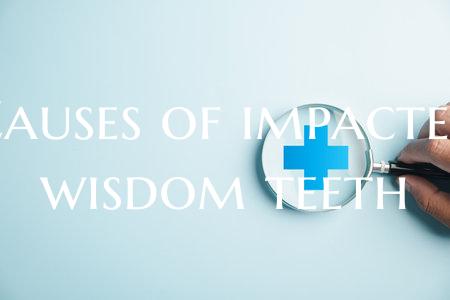
Causes of impacted wisdom teeth
Impacted wisdom teeth are a common dental issue that many people face. These are the third set of molars that typically emerge in the late teens or early twenties. However, due to various reasons, these teeth can become impacted, meaning they do not fully erupt through the gum line. Several factors contribute to the development of impacted wisdom teeth:
1. Lack of Space: One of the primary reasons for impacted wisdom teeth is the lack of sufficient space in the jaw to accommodate these additional teeth. As a result, the wisdom teeth may grow at an angle or get stuck in the jawbone.
2. Misaligned Growth: Sometimes, wisdom teeth grow in a way that they are angled towards the adjacent tooth or the back of the mouth. This misalignment can hinder their proper eruption through the gums, leading to impaction.
3. Overcrowding: In cases where the jaw is overcrowded with existing teeth, there may not be enough room for the wisdom teeth to come in properly. This overcrowding can cause the wisdom teeth to become impacted.
4. Late Development: Wisdom teeth, being the last set of molars to emerge, may not have adequate space left for them to grow in properly if other teeth have already fully erupted.
5. Genetics: The likelihood of experiencing impacted wisdom teeth can also be influenced by genetics. If family members have had issues with impacted wisdom teeth, there may be a higher chance of the same occurring in an individual.
6. Soft Tissue Obstruction: Sometimes, a flap of gum tissue can cover a portion of the wisdom tooth, making it difficult for the tooth to fully emerge.
It is essential to monitor the growth and development of wisdom teeth through regular dental check-ups to detect any signs of impaction early on. If impacted wisdom teeth are causing discomfort, pain, or affecting the alignment of other teeth, extraction may be recommended by a dentist or an oral surgeon to prevent further complications.